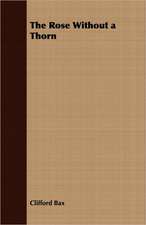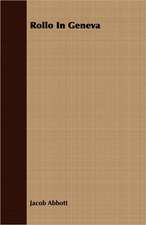Waiting
Autor Ha Jinen Limba Engleză Hardback – 10 sep 2024
"Ha Jin's novel could hardly be less theatrical, yet we're immediately engaged by its narrative structure, by its wry humor and by the subtle, startling shifts it produces in our understanding of characters and their situation."--The New York Times Book Review
"Subtle and complex--his best work to date. A moving meditation on the effects of time upon love."--The Washington Post
"A high achievement indeed."--Ian Buruma, The New York Review of Books
"A portrait of Chinese provincial life that terrifies with its emptiness even more than with its all-pervasive vulgarity. The poet in [Jin] intersperses these human scenes with achingly beautiful vignettes of natural beauty."--Los Angeles Times
"A simple love story that transcends cultural barriers--. From the idyllic countryside to the small towns in northeast China, Jin's depictions are filled with an earthy poetic grace--. Jin's account of daily life in China is convincing and rich in detail."--The Chicago Tribune
"Compassionate, earthy, robust, and wise, Waiting blends provocative allegory with all-too-human comedy. The result touches and reveals, bringing to life a singular world in its spectacular intricacy."--Gish Jen, author of Who's Irish?
"A remarkable love story. Ha Jin's understanding of the human heart and the human condition transcends borders and time. Waiting is an outstanding literary achievement."--Lisa See, author of On Gold Mountain
| Toate formatele și edițiile | Preț | Express |
|---|---|---|
| Paperback (2) | 53.27 lei 26-32 zile | +19.24 lei 7-13 zile |
| Vintage Publishing – 5 oct 2000 | 53.27 lei 26-32 zile | +19.24 lei 7-13 zile |
| Vintage Books USA – 31 aug 2000 | 96.30 lei 3-5 săpt. | |
| Hardback (2) | 82.66 lei 26-32 zile | +33.39 lei 7-13 zile |
| EVERYMAN – 15 aug 2024 | 82.66 lei 26-32 zile | +33.39 lei 7-13 zile |
| Knopf Doubleday Publishing Group – 10 sep 2024 | 174.88 lei 3-5 săpt. |
Preț: 174.88 lei
Nou
Puncte Express: 262
Preț estimativ în valută:
33.47€ • 34.74$ • 27.91£
33.47€ • 34.74$ • 27.91£
Carte disponibilă
Livrare economică 01-15 martie
Preluare comenzi: 021 569.72.76
Specificații
ISBN-13: 9781101908495
ISBN-10: 1101908491
Pagini: 328
Dimensiuni: 132 x 206 x 28 mm
Greutate: 0.48 kg
Editura: Knopf Doubleday Publishing Group
ISBN-10: 1101908491
Pagini: 328
Dimensiuni: 132 x 206 x 28 mm
Greutate: 0.48 kg
Editura: Knopf Doubleday Publishing Group
Notă biografică
Ha Jin left his native China in 1985 to attend Brandeis University. He is the author of the internationally bestselling novel Waiting, which won the PEN/Faulkner Award and the National Book Award, and War Trash, which won the PEN/Faulkner Award for Fiction, and was a Finalist for the Pulitzer Prize and the Kiriyama Pacific Rim Book Prize; the story collections The Bridegroom, which won the Asian American Literary Award, Under the Red Flag, which won the Flannery O’Connor Award for Short Fiction, and Ocean of Words, which won the PEN/Hemingway Award; the novels The Crazed and In the Pond; and three books of poetry. His latest novel, A Free Life is his first novel set in the United States. He lives in the Boston area and is a professor of English at Boston University.
War Trash, The Crazed, The Bridegroom, Waiting, In the Pond, and Ocean of Words are available in paperback from Vintage Books.
War Trash, The Crazed, The Bridegroom, Waiting, In the Pond, and Ocean of Words are available in paperback from Vintage Books.
Extras
Lin Kong graduated from the military medical school toward the end of 1963 and came to Muji to work as a doctor. At that time the hospital ran a small nursing school, which offered a sixteen-month program and produced nurses for the army in Manchuria and Inner Mongolia. When Manna Wu enrolled as a student in the fall of 1964, Lin was teaching a course in anatomy. She was an energetic young woman at the time, playing volleyball on the hospital team. Unlike most of her classmates who were recent middle- or high-school graduates, she had already served three years as a telephone operator in a coastal division and was older than most of them. Since over 95 percent of the students in the nursing school were female, many young officers from the units stationed in Muji City would frequent the hospital on weekends.
Most of the officers wanted to find a girlfriend or a fiancée among the students, although these young women were still soldiers and were not allowed to have a boyfriend. There was a secret reason for the men's interest in the female students, a reason few of them would articulate but one which they all knew in their hearts, namely that these were "good girls." That phrase meant these women were virgins; otherwise they could not have joined the army, since every young woman recruited had to go through a physical exam that eliminated those with a broken hymen.
One Sunday afternoon in the summer, Manna was washing clothes alone in the dormitory washroom. In came a bareheaded lieutenant of slender build and medium height, his face marked with a few freckles. His collar was unbuckled and the top buttons on his jacket were undone, displaying his prominent Adam's apple. He stood beside her, lifted his foot up, and placed it into the long terrazzo sink. The tap water splashed on his black plastic sandal and spread like a silvery fan. Done with the left foot, he put in his right. To Manna's amusement, he bathed his feet again and again. His breath stank of alcohol.
He turned and gave her a toothy grin, and she smiled back. Gradually they entered into conversation. He said he was the head of a radio station at the headquarters of the Muji Sub-Command and a friend of Instructor Peng. His hands shook a little as he talked. He asked where she came from; she told him her hometown was in Shandong Province, withholding the fact that she had grown up as an orphan without a hometown -- her parents had died in a traffic accident in Tibet when she was three.
"What's your name?" he asked.
"Manna Wu."
"I'm Mai Dong, from Shanghai."
A lull set in. She felt her face flushing a little, so she returned to washing her clothes. But he seemed eager to go on talking.
"Glad to meet you, Comrade Manna Wu," he said abruptly and stretched out his hand.
She waved to show the soapsuds on her palms. "Sorry," she said with a pixieish smile.
"By the way, how do you like Muji?" he asked, rubbing his wet hands on his flanks.
"It's all right."
"Really? Even the weather here?"
"Yes."
"Not too cold in winter?" Before she could answer, he went on, "Of course, summer's fine. How about -- "
"Why did you bathe your feet eight or nine times?" She giggled.
"Oh, did I?" He seemed bewildered, looking down at his feet.
"Nice sandals," she said.
"My cousin sent them from Shanghai. By the way, how old are you?" He grinned.
Surprised by the question, she looked at him for a moment and then turned away, reddening.
He smiled rather naturally. "I mean, do you have a boyfriend?"
Again she was taken aback. Before she could decide how to answer, a woman student walked in with a bucket to fetch water, so their conversation had to end.
A week later she received a letter from Mai Dong. He apologized profusely for disturbing her in the washroom and for his untidy appearance, which wasn't suitable for an officer. He had asked her so many embarrassing questions, she must have taken him for an idiot. But he had not been himself that day. He begged her to forgive him. She wrote back, saying she had not been offended, instead very much amused. She appreciated his candor and natural manners.
Both of them were in their mid-twenties and had never taken a lover. Soon they began to write each other a few times a week. Within two months they started their rendezvous on weekends at movie theaters, parks, and the riverbank. Mai Dong hated Muji, which was a city with a population of about a quarter of a million. He dreaded its severe winters and the north winds that came from Siberia with clouds of snow dust. The smog, which always curtained the sky when the weather was cold, aggravated his chronic sore throat. His work, transcribing and transmitting telegrams, impaired his eyesight. He was unhappy and complained a great deal.
Manna tried to comfort him with kind words. By nature he was weak and gentle. Sometimes she felt he was like a small boy who needed the care of an elder sister or a mother.
One Saturday afternoon in the fall, they met in Victory Park. Under a weeping willow on the bank of a lake, they sat together watching a group of children on the other shore flying a large kite, which was a paper centipede crawling up and down in the air. To their right, about a hundred feet away, a donkey was tethered to a tree, now and then whisking its tail. Its master was lying on the grass and taking a nap, a green cap over his face so that flies might not bother him. Maple seeds floated down, revolving in the breeze. Furtively Mai Dong stretched out his hand, held Manna's shoulder, and pulled her closer so as to kiss her lips.
"What are you doing?" she cried, leaping to her feet. Her abrupt movement scared away the mallards and geese in the water. She didn't understand his intention and thought he had attempted something indecent, like a hoodlum. She didn't remember ever being kissed by anyone.
He looked puzzled, then muttered, "I didn't mean to make you angry like this."
"Don't ever do that again."
"All right, I won't." He turned away from her and looked piqued, spitting on the grass.
From then on, though she didn't reproach him again, she resisted his advances resolutely, her sense of virtue and honor preventing her from succumbing to his desire. Her resistance kindled his passion. Soon he told her that he couldn't help thinking of her all the time, as though she had become his shadow. Sometimes at night, he would walk alone in the compound of the Sub-Command headquarters for hours, with his 1951 pistol stuck in his belt. Heaven knew how he missed her and how many nights he remained awake tossing and turning while thinking about her. Out of desperation, he proposed to her two months before her graduation. He wanted to marry her without delay.
She thought he must have lost his mind, though by now she also couldn't help thinking of him for an hour or two every night. Her head ached in the morning, her grades were suffering, and she was often angry with herself. She would lose her temper with others for no apparent reason. When nobody was around, tears often came to her eyes. For all their love, an immediate marriage would be impracticable, out of the question. She was uncertain where she would be sent when she graduated, probably to a remote army unit, which could be anywhere in Manchuria or Inner Mongolia. Besides, a marriage at this moment would suggest that she was having a love affair; this would invite punishment, the lightest of which the school would administer was to keep the couple as separate as possible. In recent years the leaders had assigned some lovers to different places deliberately.
She revealed Mai Dong's proposal to nobody except her teacher Lin Kong, who was known as a good-hearted married man and was regarded by many students as a kind of elder brother. In such a situation she needed an objective opinion. Lin agreed that a marriage at this moment was unwise, and that they had better wait a while until her graduation and then decide what to do. He promised he would let nobody know of the relationship. In addition, he said he would try to help her in the job assignment if he was involved in making the decision.
She reasoned Mai Dong out of the idea of an immediate marriage and assured him that she would become his wife sooner or later. As graduation approached, they both grew restless, hoping she would remain in Muji City. He was depressed, and his despondency made her love him more.
At the graduation she was assigned to stay in the hospital and work in its Medical Department as a nurse -- a junior officer of the twenty-fourth rank. The good news, however, didn't please Mai Dong and Manna for long, because a week later he was informed that his radio station was going to be transferred to a newly formed regiment in Fuyuan County, almost eighty miles northeast of Muji and very close to the Russian border.
"Don't panic," she told him. "Work and study hard on the front. I'll wait for you."
Though also heartbroken, she felt he was a rather pathetic man. She wished he were stronger, a man she could rely on in times of adversity, because life always had unexpected misfortunes.
"When will we get married?" he asked.
"Soon, I promise."
Despite saying that, she was unsure whether he would be able to come back to Muji. She preferred to wait a while.
The nearer the time for departure drew, the more embittered Mai Dong became. A few times he mentioned he would rather be demobilized and return to Shanghai, but she dissuaded him from considering that. A discharge might send him to a place far away, such as an oil field or a construction corps building railroads in the interior of China. It was better for them to stay as close as possible.
When she saw him off at the front entrance of the Sub-Command headquarters, she had to keep blowing on her fingers, having forgotten to bring along her mittens. She wouldn't take the fur gloves he offered her; she said he would need them more. He stood at the back door of the radio van, whose green body had turned gray with encrusted ice and snow. The radio antenna atop the van was tilting in the wind, which, with a shrill whistle, again and again tried to snatch it up and bear it off. More snow was falling, and the air was piercingly cold. Mai Dong's breath hung around his face as he shouted orders to his soldiers in the van, who gathered at the window, eager to see what Manna looked like. Outside the van, a man loaded into a side trunk some large wooden blocks needed for climbing the slippery mountain roads. The driver kicked the rear wheels to see whether the tire chains were securely fastened. His fur hat was completely white, a nest of snowflakes.
As the van drew away, Mai Dong waved good-bye to Manna, his hand stretching through the back window, as though struggling to pull her along. He wanted to cry, "Wait for me, Manna!" but he dared not get that out in the presence of his men. Seeing his face contort with pain, Manna's eyes blurred with tears. She bit her lips so as not to cry.
Winter in Muji was long. Snow wouldn't disappear until early May. In mid-April when the Songhua River began to break up, people would gather at the bank watching the large blocks of ice cracking and drifting in the blackish-green water. Teenage boys, baskets in hand, would tread and hop on the floating ice, picking up pike, whitefish, carp, baby sturgeon, and catfish killed by the ice blocks that had been washed down by spring torrents. Steamboats, still in the docks, blew their horns time and again. When the main channel was finally clear of ice, they crept out, sailing slowly up and down the river and saluting the spectators with long blasts. Children would hail and wave at them.
Then spring descended all of a sudden. Aspen catkins flew in the air, so thick that when walking on the streets you could breathe them in and you would flick your hand to keep them away from your face. The scent of lilac blooms was pungent and intoxicating. Yet old people still wrapped themselves in fur or cotton-padded clothes. The dark earth, vast and loamy, marked by tufts of yellow grass here and there, began emitting a warm vapor that flickered like purple smoke in the sunshine. All at once apricot and peach trees broke into blossoms, which grew puffy as bees kept touching them. Within two weeks the summer started. Spring was so short here that people would say Muji had only three seasons.
In her letters to Mai Dong, Manna described these seasonal changes as though he had never lived in the city. As always, he complained in his letters about life at the front. Many soldiers there suffered from night blindness because they hadn't eaten enough vegetables. They all had lice in their underclothes since they couldn't take baths in their barracks. For the whole winter and spring he had seen only two movies. He had lost fourteen pounds, he was like a skeleton now. To comfort him, each month Manna mailed him a small bag of peanut brittle.
One evening in June, Manna and two other nurses were about to set out for the volleyball court behind the medical building. Benping, the soldier in charge of mail and newspapers, came and handed her a letter. Seeing it was from Mai Dong, her teammates teased her, saying, "Aha, a love letter."
She opened the envelope and was shocked while reading through the two pages. Mai Dong told her that he couldn't stand the life on the border any longer and had applied for a discharge, which had been granted. He was going back to Shanghai, where the weather was milder and the food better. More heartrending, he had decided to marry his cousin, who was a salesgirl at a department store in Shanghai. Without such a marriage, he wouldn't be able to obtain a residence card, which was absolutely necessary for him to live and find employment in the metropolis. In reality he and the girl had been engaged even before he had applied for his discharge; otherwise he wouldn't have been allowed to go to Shanghai, since he was not from the city proper but from one of its suburban counties. He was sorry for Manna and asked her to hate and forget him.
Her initial response was long silence.
"Are you okay?" Nurse Shen asked.
Manna nodded and said nothing. Then the three of them set out for the game.
On the volleyball court Manna, usually an indifferent player, struck the ball with such ferocity that for the first time her comrades shouted "Bravo" for her. Her face was smeared with sweat and tears. As she dove to save a ball, she fell flat on the graveled court and scraped her right elbow. The spectators applauded the diving save while she slowly picked herself up and found blood oozing from her skin.
During the break her teammates told her to go to the clinic and have the injury dressed, so she left, planning to return for the second game. But on her way, she changed her mind and ran back to the dormitory. She merely washed her elbow with cold water and didn't bandage it.
Once alone in the bedroom, she read the letter again and tears gushed from her eyes. She flung the pages down on the desk and fell on her bed, sobbing, twisting, and biting the pillowcase. A mosquito buzzed above her head, then settled on her neck, but she
didn't bother to slap it. She felt as if her heart had been pierced.
When her three roommates came back at nine, she was still in tears. They picked up the letter and glanced through it; together they tried to console her by condemning the heartless man. But their words made her sob harder and even convulsively. That night she didn't wash her face or brush her teeth. She slept with her clothes on, waking now and then and weeping quietly while her roommates wheezed or smacked their lips or murmured something in their sleep. She simply couldn't stop her tears.
She was ill for a few weeks. She felt aged, in deep lassitude and numb despair, and regretted not marrying Mai Dong before he left for the front. Her limbs were weary, as though separated from herself. Despite her comrades' protests, she dropped out of the volleyball team, saying she was too sick to play. She spent more time alone, as though all at once she belonged to an older generation; she cared less about her looks and clothes.
By now she was almost twenty-six, on the verge of becoming an old maid, whose standard age was twenty-seven to most people's minds. The hospital had three old maids; Manna seemed destined to join them.
She wasn't very attractive, but she was slim and tall and looked natural; besides, she had a pleasant voice. In normal circumstances she wouldn't have had difficulty in finding a boyfriend, but the hospital always kept over a hundred women nurses, most of whom were around twenty, healthy and normal, so young officers could easily find girlfriends among them. As a result, few men were interested in Manna. Only an enlisted soldier paid her some attentions. He was a cook, a squat man from Szechwan Province, and he would dole out to her a larger portion of a dish when she bought her meal. But she did not want an enlisted soldier as a boyfriend, which would have violated the rule that only officers could have a girlfriend or a boyfriend. Besides, that man looked awful -- owlish and cunning. So she avoided standing in any line leading to his window.
Most of the officers wanted to find a girlfriend or a fiancée among the students, although these young women were still soldiers and were not allowed to have a boyfriend. There was a secret reason for the men's interest in the female students, a reason few of them would articulate but one which they all knew in their hearts, namely that these were "good girls." That phrase meant these women were virgins; otherwise they could not have joined the army, since every young woman recruited had to go through a physical exam that eliminated those with a broken hymen.
One Sunday afternoon in the summer, Manna was washing clothes alone in the dormitory washroom. In came a bareheaded lieutenant of slender build and medium height, his face marked with a few freckles. His collar was unbuckled and the top buttons on his jacket were undone, displaying his prominent Adam's apple. He stood beside her, lifted his foot up, and placed it into the long terrazzo sink. The tap water splashed on his black plastic sandal and spread like a silvery fan. Done with the left foot, he put in his right. To Manna's amusement, he bathed his feet again and again. His breath stank of alcohol.
He turned and gave her a toothy grin, and she smiled back. Gradually they entered into conversation. He said he was the head of a radio station at the headquarters of the Muji Sub-Command and a friend of Instructor Peng. His hands shook a little as he talked. He asked where she came from; she told him her hometown was in Shandong Province, withholding the fact that she had grown up as an orphan without a hometown -- her parents had died in a traffic accident in Tibet when she was three.
"What's your name?" he asked.
"Manna Wu."
"I'm Mai Dong, from Shanghai."
A lull set in. She felt her face flushing a little, so she returned to washing her clothes. But he seemed eager to go on talking.
"Glad to meet you, Comrade Manna Wu," he said abruptly and stretched out his hand.
She waved to show the soapsuds on her palms. "Sorry," she said with a pixieish smile.
"By the way, how do you like Muji?" he asked, rubbing his wet hands on his flanks.
"It's all right."
"Really? Even the weather here?"
"Yes."
"Not too cold in winter?" Before she could answer, he went on, "Of course, summer's fine. How about -- "
"Why did you bathe your feet eight or nine times?" She giggled.
"Oh, did I?" He seemed bewildered, looking down at his feet.
"Nice sandals," she said.
"My cousin sent them from Shanghai. By the way, how old are you?" He grinned.
Surprised by the question, she looked at him for a moment and then turned away, reddening.
He smiled rather naturally. "I mean, do you have a boyfriend?"
Again she was taken aback. Before she could decide how to answer, a woman student walked in with a bucket to fetch water, so their conversation had to end.
A week later she received a letter from Mai Dong. He apologized profusely for disturbing her in the washroom and for his untidy appearance, which wasn't suitable for an officer. He had asked her so many embarrassing questions, she must have taken him for an idiot. But he had not been himself that day. He begged her to forgive him. She wrote back, saying she had not been offended, instead very much amused. She appreciated his candor and natural manners.
Both of them were in their mid-twenties and had never taken a lover. Soon they began to write each other a few times a week. Within two months they started their rendezvous on weekends at movie theaters, parks, and the riverbank. Mai Dong hated Muji, which was a city with a population of about a quarter of a million. He dreaded its severe winters and the north winds that came from Siberia with clouds of snow dust. The smog, which always curtained the sky when the weather was cold, aggravated his chronic sore throat. His work, transcribing and transmitting telegrams, impaired his eyesight. He was unhappy and complained a great deal.
Manna tried to comfort him with kind words. By nature he was weak and gentle. Sometimes she felt he was like a small boy who needed the care of an elder sister or a mother.
One Saturday afternoon in the fall, they met in Victory Park. Under a weeping willow on the bank of a lake, they sat together watching a group of children on the other shore flying a large kite, which was a paper centipede crawling up and down in the air. To their right, about a hundred feet away, a donkey was tethered to a tree, now and then whisking its tail. Its master was lying on the grass and taking a nap, a green cap over his face so that flies might not bother him. Maple seeds floated down, revolving in the breeze. Furtively Mai Dong stretched out his hand, held Manna's shoulder, and pulled her closer so as to kiss her lips.
"What are you doing?" she cried, leaping to her feet. Her abrupt movement scared away the mallards and geese in the water. She didn't understand his intention and thought he had attempted something indecent, like a hoodlum. She didn't remember ever being kissed by anyone.
He looked puzzled, then muttered, "I didn't mean to make you angry like this."
"Don't ever do that again."
"All right, I won't." He turned away from her and looked piqued, spitting on the grass.
From then on, though she didn't reproach him again, she resisted his advances resolutely, her sense of virtue and honor preventing her from succumbing to his desire. Her resistance kindled his passion. Soon he told her that he couldn't help thinking of her all the time, as though she had become his shadow. Sometimes at night, he would walk alone in the compound of the Sub-Command headquarters for hours, with his 1951 pistol stuck in his belt. Heaven knew how he missed her and how many nights he remained awake tossing and turning while thinking about her. Out of desperation, he proposed to her two months before her graduation. He wanted to marry her without delay.
She thought he must have lost his mind, though by now she also couldn't help thinking of him for an hour or two every night. Her head ached in the morning, her grades were suffering, and she was often angry with herself. She would lose her temper with others for no apparent reason. When nobody was around, tears often came to her eyes. For all their love, an immediate marriage would be impracticable, out of the question. She was uncertain where she would be sent when she graduated, probably to a remote army unit, which could be anywhere in Manchuria or Inner Mongolia. Besides, a marriage at this moment would suggest that she was having a love affair; this would invite punishment, the lightest of which the school would administer was to keep the couple as separate as possible. In recent years the leaders had assigned some lovers to different places deliberately.
She revealed Mai Dong's proposal to nobody except her teacher Lin Kong, who was known as a good-hearted married man and was regarded by many students as a kind of elder brother. In such a situation she needed an objective opinion. Lin agreed that a marriage at this moment was unwise, and that they had better wait a while until her graduation and then decide what to do. He promised he would let nobody know of the relationship. In addition, he said he would try to help her in the job assignment if he was involved in making the decision.
She reasoned Mai Dong out of the idea of an immediate marriage and assured him that she would become his wife sooner or later. As graduation approached, they both grew restless, hoping she would remain in Muji City. He was depressed, and his despondency made her love him more.
At the graduation she was assigned to stay in the hospital and work in its Medical Department as a nurse -- a junior officer of the twenty-fourth rank. The good news, however, didn't please Mai Dong and Manna for long, because a week later he was informed that his radio station was going to be transferred to a newly formed regiment in Fuyuan County, almost eighty miles northeast of Muji and very close to the Russian border.
"Don't panic," she told him. "Work and study hard on the front. I'll wait for you."
Though also heartbroken, she felt he was a rather pathetic man. She wished he were stronger, a man she could rely on in times of adversity, because life always had unexpected misfortunes.
"When will we get married?" he asked.
"Soon, I promise."
Despite saying that, she was unsure whether he would be able to come back to Muji. She preferred to wait a while.
The nearer the time for departure drew, the more embittered Mai Dong became. A few times he mentioned he would rather be demobilized and return to Shanghai, but she dissuaded him from considering that. A discharge might send him to a place far away, such as an oil field or a construction corps building railroads in the interior of China. It was better for them to stay as close as possible.
When she saw him off at the front entrance of the Sub-Command headquarters, she had to keep blowing on her fingers, having forgotten to bring along her mittens. She wouldn't take the fur gloves he offered her; she said he would need them more. He stood at the back door of the radio van, whose green body had turned gray with encrusted ice and snow. The radio antenna atop the van was tilting in the wind, which, with a shrill whistle, again and again tried to snatch it up and bear it off. More snow was falling, and the air was piercingly cold. Mai Dong's breath hung around his face as he shouted orders to his soldiers in the van, who gathered at the window, eager to see what Manna looked like. Outside the van, a man loaded into a side trunk some large wooden blocks needed for climbing the slippery mountain roads. The driver kicked the rear wheels to see whether the tire chains were securely fastened. His fur hat was completely white, a nest of snowflakes.
As the van drew away, Mai Dong waved good-bye to Manna, his hand stretching through the back window, as though struggling to pull her along. He wanted to cry, "Wait for me, Manna!" but he dared not get that out in the presence of his men. Seeing his face contort with pain, Manna's eyes blurred with tears. She bit her lips so as not to cry.
Winter in Muji was long. Snow wouldn't disappear until early May. In mid-April when the Songhua River began to break up, people would gather at the bank watching the large blocks of ice cracking and drifting in the blackish-green water. Teenage boys, baskets in hand, would tread and hop on the floating ice, picking up pike, whitefish, carp, baby sturgeon, and catfish killed by the ice blocks that had been washed down by spring torrents. Steamboats, still in the docks, blew their horns time and again. When the main channel was finally clear of ice, they crept out, sailing slowly up and down the river and saluting the spectators with long blasts. Children would hail and wave at them.
Then spring descended all of a sudden. Aspen catkins flew in the air, so thick that when walking on the streets you could breathe them in and you would flick your hand to keep them away from your face. The scent of lilac blooms was pungent and intoxicating. Yet old people still wrapped themselves in fur or cotton-padded clothes. The dark earth, vast and loamy, marked by tufts of yellow grass here and there, began emitting a warm vapor that flickered like purple smoke in the sunshine. All at once apricot and peach trees broke into blossoms, which grew puffy as bees kept touching them. Within two weeks the summer started. Spring was so short here that people would say Muji had only three seasons.
In her letters to Mai Dong, Manna described these seasonal changes as though he had never lived in the city. As always, he complained in his letters about life at the front. Many soldiers there suffered from night blindness because they hadn't eaten enough vegetables. They all had lice in their underclothes since they couldn't take baths in their barracks. For the whole winter and spring he had seen only two movies. He had lost fourteen pounds, he was like a skeleton now. To comfort him, each month Manna mailed him a small bag of peanut brittle.
One evening in June, Manna and two other nurses were about to set out for the volleyball court behind the medical building. Benping, the soldier in charge of mail and newspapers, came and handed her a letter. Seeing it was from Mai Dong, her teammates teased her, saying, "Aha, a love letter."
She opened the envelope and was shocked while reading through the two pages. Mai Dong told her that he couldn't stand the life on the border any longer and had applied for a discharge, which had been granted. He was going back to Shanghai, where the weather was milder and the food better. More heartrending, he had decided to marry his cousin, who was a salesgirl at a department store in Shanghai. Without such a marriage, he wouldn't be able to obtain a residence card, which was absolutely necessary for him to live and find employment in the metropolis. In reality he and the girl had been engaged even before he had applied for his discharge; otherwise he wouldn't have been allowed to go to Shanghai, since he was not from the city proper but from one of its suburban counties. He was sorry for Manna and asked her to hate and forget him.
Her initial response was long silence.
"Are you okay?" Nurse Shen asked.
Manna nodded and said nothing. Then the three of them set out for the game.
On the volleyball court Manna, usually an indifferent player, struck the ball with such ferocity that for the first time her comrades shouted "Bravo" for her. Her face was smeared with sweat and tears. As she dove to save a ball, she fell flat on the graveled court and scraped her right elbow. The spectators applauded the diving save while she slowly picked herself up and found blood oozing from her skin.
During the break her teammates told her to go to the clinic and have the injury dressed, so she left, planning to return for the second game. But on her way, she changed her mind and ran back to the dormitory. She merely washed her elbow with cold water and didn't bandage it.
Once alone in the bedroom, she read the letter again and tears gushed from her eyes. She flung the pages down on the desk and fell on her bed, sobbing, twisting, and biting the pillowcase. A mosquito buzzed above her head, then settled on her neck, but she
didn't bother to slap it. She felt as if her heart had been pierced.
When her three roommates came back at nine, she was still in tears. They picked up the letter and glanced through it; together they tried to console her by condemning the heartless man. But their words made her sob harder and even convulsively. That night she didn't wash her face or brush her teeth. She slept with her clothes on, waking now and then and weeping quietly while her roommates wheezed or smacked their lips or murmured something in their sleep. She simply couldn't stop her tears.
She was ill for a few weeks. She felt aged, in deep lassitude and numb despair, and regretted not marrying Mai Dong before he left for the front. Her limbs were weary, as though separated from herself. Despite her comrades' protests, she dropped out of the volleyball team, saying she was too sick to play. She spent more time alone, as though all at once she belonged to an older generation; she cared less about her looks and clothes.
By now she was almost twenty-six, on the verge of becoming an old maid, whose standard age was twenty-seven to most people's minds. The hospital had three old maids; Manna seemed destined to join them.
She wasn't very attractive, but she was slim and tall and looked natural; besides, she had a pleasant voice. In normal circumstances she wouldn't have had difficulty in finding a boyfriend, but the hospital always kept over a hundred women nurses, most of whom were around twenty, healthy and normal, so young officers could easily find girlfriends among them. As a result, few men were interested in Manna. Only an enlisted soldier paid her some attentions. He was a cook, a squat man from Szechwan Province, and he would dole out to her a larger portion of a dish when she bought her meal. But she did not want an enlisted soldier as a boyfriend, which would have violated the rule that only officers could have a girlfriend or a boyfriend. Besides, that man looked awful -- owlish and cunning. So she avoided standing in any line leading to his window.
Recenzii
"A simple love story that transcends cultural barriers. . . . Convincing and rich in detail. . . . Filled with an earthy poetic grace." —Chicago Tribune
"Luminous. . . . Eloquent. . . . [Waiting] provides. . . a crash course in Chinese society during and since the Cultural Revolution, and a more leisurely but nonetheless compelling exploration of the less exotic terrain that is the human heart." —The New York Times Book Review
"[Ha Jin's] writing is steeped in wit, rich metaphorical underpinnings and. . . endless and wonderful detail." —The Atlanta Journal Constitution
"Extraordinary. . . . A remarkably austere love story, suffused with irony and subtlety." --Chicago Sun-Times
"Waiting has the stripped down simplicity of a fable. . . It casts a spell that doesn't break once. . . . Jin has the kind of effortless command that most writers can only dream about." —The New York Times Magazine
“Achingly beautiful. . . . Ha Jin depicts the details of social etiquette, of food, of rural family relationships and the complex yet alarmingly primitive fabric of provincial life with that absorbed passion for minutiae characteristic of Dickens and Balzac.” —Los Angeles Times Book Review
“A vivid bit of storytelling, fluid and earthy. . . . Reminiscent of Hemingway in its scope, simplicity and precise language. . . . A graceful human allegory.” —Chicago Sun-Times
“A subtle beauty. . . . A sad, poignantly funny tale.” —The Boston Sunday Globe
“Impeccably deadpan. . . . Waiting turns, page by careful page, into a deliciously comic novel.” —Time
“Spare but compelling. . . . Jin’s craftsmanship and grasp of the universal language of the human heart make the book a worthwhile read.” —USA Today
“A wry, lovely novel. . . . Unexpectedly moving. . . . So quietly and carefully told that . . . we read on patiently, pleasantly distracted, wondering when something will happen. Only when we’ve finished do we understand just how much has, and how much waiting can be its own painful reward.” —Newsday
“Enlightening . . . a delicate rendering of the universal complications of love. . . . Ha Jin’s natural storytelling quietly captures the texture of daily life in a dual Chinese culture. . . . No detail is extraneous in this sad, funny, and often wise novel.” —The Village Voice Literary Supplement
“Remarkable . . . compellingly ingenious . . . gorgeously cinematic.” —The Philadelphia Inquirer
“A wonderfully ironic novel . . . complex and sad as life. . . . It captures the difficulties of love in totalitarian China with sharp prose and a convincing portrayal of human vagaries.” —Minneapolis Star Tribune
“Subtle and complex . . . his best work to date. A moving meditation on the effects of time upon love.” —The Washington Post
“[Jin] reveals some startlingly original insights on human life and love . . . in a narrative that dazzles the reader with its simplicity and grace.” —The Providence Sunday Journal
“[Waiting is] a masterpiece of realism and a work of ironic allegory, its mystifying, foreign world full of characters who grow more familiar with every page. . . . Through an accumulation of small, deft brushstrokes, 20th century China is superimposed onto the landscape of an ancient, painted scroll.” —The Plain Dealer
“A high achievement indeed.” —The New York Review of Books
"Luminous. . . . Eloquent. . . . [Waiting] provides. . . a crash course in Chinese society during and since the Cultural Revolution, and a more leisurely but nonetheless compelling exploration of the less exotic terrain that is the human heart." —The New York Times Book Review
"[Ha Jin's] writing is steeped in wit, rich metaphorical underpinnings and. . . endless and wonderful detail." —The Atlanta Journal Constitution
"Extraordinary. . . . A remarkably austere love story, suffused with irony and subtlety." --Chicago Sun-Times
"Waiting has the stripped down simplicity of a fable. . . It casts a spell that doesn't break once. . . . Jin has the kind of effortless command that most writers can only dream about." —The New York Times Magazine
“Achingly beautiful. . . . Ha Jin depicts the details of social etiquette, of food, of rural family relationships and the complex yet alarmingly primitive fabric of provincial life with that absorbed passion for minutiae characteristic of Dickens and Balzac.” —Los Angeles Times Book Review
“A vivid bit of storytelling, fluid and earthy. . . . Reminiscent of Hemingway in its scope, simplicity and precise language. . . . A graceful human allegory.” —Chicago Sun-Times
“A subtle beauty. . . . A sad, poignantly funny tale.” —The Boston Sunday Globe
“Impeccably deadpan. . . . Waiting turns, page by careful page, into a deliciously comic novel.” —Time
“Spare but compelling. . . . Jin’s craftsmanship and grasp of the universal language of the human heart make the book a worthwhile read.” —USA Today
“A wry, lovely novel. . . . Unexpectedly moving. . . . So quietly and carefully told that . . . we read on patiently, pleasantly distracted, wondering when something will happen. Only when we’ve finished do we understand just how much has, and how much waiting can be its own painful reward.” —Newsday
“Enlightening . . . a delicate rendering of the universal complications of love. . . . Ha Jin’s natural storytelling quietly captures the texture of daily life in a dual Chinese culture. . . . No detail is extraneous in this sad, funny, and often wise novel.” —The Village Voice Literary Supplement
“Remarkable . . . compellingly ingenious . . . gorgeously cinematic.” —The Philadelphia Inquirer
“A wonderfully ironic novel . . . complex and sad as life. . . . It captures the difficulties of love in totalitarian China with sharp prose and a convincing portrayal of human vagaries.” —Minneapolis Star Tribune
“Subtle and complex . . . his best work to date. A moving meditation on the effects of time upon love.” —The Washington Post
“[Jin] reveals some startlingly original insights on human life and love . . . in a narrative that dazzles the reader with its simplicity and grace.” —The Providence Sunday Journal
“[Waiting is] a masterpiece of realism and a work of ironic allegory, its mystifying, foreign world full of characters who grow more familiar with every page. . . . Through an accumulation of small, deft brushstrokes, 20th century China is superimposed onto the landscape of an ancient, painted scroll.” —The Plain Dealer
“A high achievement indeed.” —The New York Review of Books
Descriere
Descriere de la o altă ediție sau format:
With wisdom, restraint, and empathy for all his characters, Ha Jin portrays the life of Lin Kong, a dedicated doctor torn by his love for two women: one who belongs to the New China of the Cultural Revolution, the other to the ancient traditions of his family's village. "A simple love story that transcends cultural barriers. . . . Jin's account of daily life in China is convincing and rich in detail".--"Chicago Tribune".
With wisdom, restraint, and empathy for all his characters, Ha Jin portrays the life of Lin Kong, a dedicated doctor torn by his love for two women: one who belongs to the New China of the Cultural Revolution, the other to the ancient traditions of his family's village. "A simple love story that transcends cultural barriers. . . . Jin's account of daily life in China is convincing and rich in detail".--"Chicago Tribune".




















